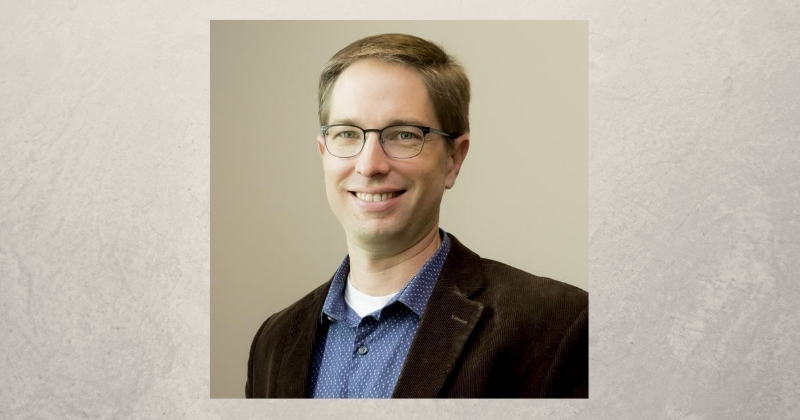
Category: Applied Economics and Statistics

Professor Profile: Martin Heintzelman
August 28, 2020 Written by Dante LaPenta
Martin Heintzelman take the reins of Applied Economics and Statistics
Amidst the wild ride that has been 2020, Martin Heintzelman climbed aboard as a faculty member and new chair of the University of Delaware Department of Applied Economics and Statistics (APEC). We sat down (virtually, of course) with Martin to learn more about him and his vision for the department.
What was it about the University of Delaware and your department that piqued your interest?
The number one point of attraction at UD was the community of scholars. As an environmental economist, I knew very well of the outstanding group of environmental and applied economists in several departments across campus, but especially in APEC. That brought me to the door, but seeing the whole community of scholars and the collegial feel made me comfortable almost immediately. I very quickly knew I would be coming into a special department on an exciting trajectory.
How would you explain your field and how is it benefiting society?
Environmental economics applies the tools and models of economics to the problems of the environment and natural resources. I like to think of the field as asking a series of questions:
- How can we measure the economic (social) values that come from environmental quality?
- With those values in hand, can we balance benefits and costs and judge whether or not our current level of environmental quality is optimal?
- If not optimal, why have our markets and institutions led to this outcome?
- What policies or changes can we implement that would help us improve societal outcomes associated with environmental quality?
My research, specifically, helps to inform the first and second questions, using tools of environmental valuation to understand the societal values from environmental amenities and disamenities, or those associated with energy systems and infrastructure. The work of environmental economists is responsible for environmental policies, like the 1990 Clean Air Act Amendments, which resulted in tremendous improvements in the environment at relatively low economic costs. My own research has informed community decisions around energy investments and the measures necessary to transform our energy system while supporting local communities.
What were the most important life experiences that molded you as a professional?
My interest in environmental issues developed out of the time I spent camping and in the outdoors, but my desire to help solve environmental problems stems from news coverage of acid rain in the 1980s and early 1990s. I specifically remember one article that had interesting maps showing the extent of acid deposition across the northeast. I went on to be a part of my high school’s Envirothon team, where we flew to nationals. That year’s major current event was acid rain and the destruction of ridgeline ecosystems caused by the intersection of acid rain and invasive insects. As a team of five students, we developed a comprehensive plan for mitigating negative impacts for the Mt. Mitchell Park in North Carolina, presenting our ideas to expert judges. We won that competition. I remember flying home and talking to my best friend about my desire to further study these issues from an economic perspective when I went to Duke the next year.
What professor was your most important mentor?
At Duke, I had the great fortune to be able to work with V. Kerry Smith, a pre-eminent scholar of environmental economics. He guided me through my coursework and brought me on as a research fellow for 12 months. I worked on topics like wetland mitigation banking, and the value of changes in mortality risk. This experience set the foundation for me to learn the techniques of environmental economics research; it gave me a foothold into the larger community of environmental economists. He was generous with his time and expertise, which continued informally for me after I left Duke and began graduate school. He still inspires me today to do my best to live up to his model of mentorship.
What are your aspirations for your department and for our University?
Given the tremendous group of faculty that I have the privilege to be leading and supporting, we aim to continue to grow the reputation of our department both internally and externally. The Center for Experimental and Applied Economics is internationally recognized as leading the way in applying behavioral and experimental approaches to issues in the environment and food systems. In addition to helping inform policy solutions, we are also developing the next generation of scholars and professionals through our undergraduate and graduate programs. We’re producing technically proficient critical thinkers skilled at using data and analysis — ready to engage in any industry. We’ll grow these programs and seek out new opportunities to reach new groups of students. We’ll provide a welcoming and inclusive environment for all students and other stakeholders, looking for ways to overcome systemic obstacles that have so far prevented us from adequately engaging with underrepresented and marginalized groups to do our part towards building a more equitable society. We are actively looking for new ways to engage with our state’s agricultural and natural resource sectors through Cooperative Extension programming in risk management and other areas that will allow us to apply our research and technical expertise to help the state and region to thrive as we recover from the recent economic shocks.
